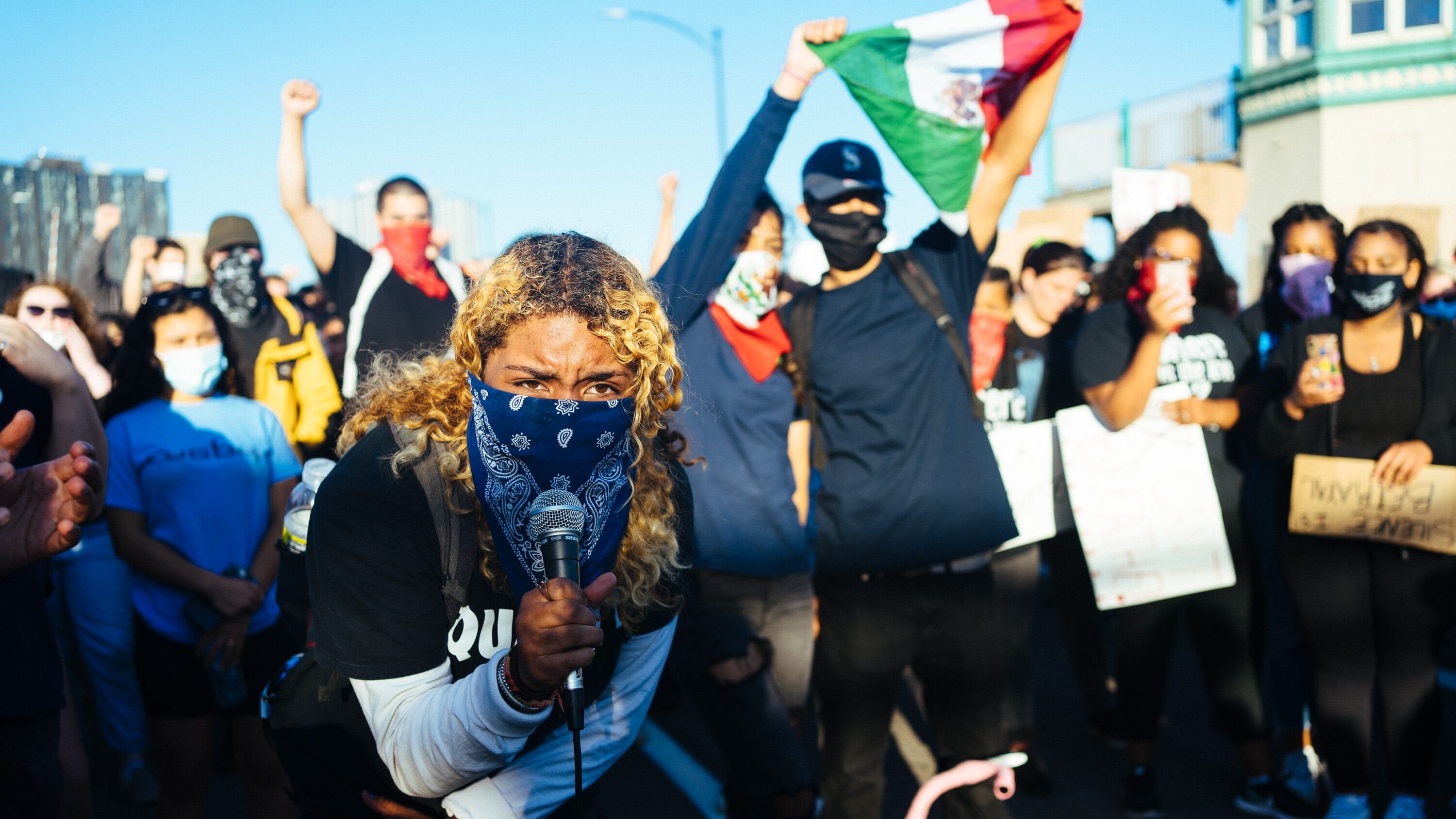Portland Mayor Ted Wheeler nodded to the obvious this morning: The 8 pm curfew he imposed the three previous nights served as more of a challenge than a barrier.
After a generally calm night of demonstrations Monday, Wheeler said on Tuesday morning that he'd suspend the curfew.
"Last night marked a significant shift in the tenor of recent demonstrations," Wheeler said. "Thousands of people gather and they did so peacefully. They spoke truth to power."
He said protesters regulated themselves.
"There were a limited few who stayed behind to attempt to wreak havoc but they were urged in greater numbers by the demonstrators to stop taking away from the message of the movement," Wheeler said. "It was the demonstrators themselves who set the tone for the evening. They collectively demanded peace and nonviolence."
Having seen that, he decided to change the conditions. "Tonight, I am not extending the curfew," Wheeler said. "Dozens of cities enacted curfews to do everything we could to protect the public safety, but it's time to move forward."
Wheeler also pushed back against Gov. Kate Brown, who initially refused his request for Oregon National Guard troops and then yesterday partially complied while criticizing him for his handling of the protests.
"I was alarmed last night to see the governor's mischaracterization of the city's request for the National Guard," Wheeler said.
He insisted that he asked for troops to guard buildings and free up local law enforcement officials for both rest and crowd management duties.
"When the governor said I requested the National Guard be deployed in direct confrontation with protesters, I called her and we had a conversation about mischaracterization," he said, adding there were several people on the call who could verify his version of the conversation.
The governor's office provided a statement on the disagreement.
"Over the weekend, the mayor specifically requested that the governor mobilize Oregon National Guard members in order to be a visible presence protecting high-profile buildings, including the Justice Center downtown. This request was denied over the weekend and an equal number of additional state police troopers were sent instead. The mayor and governor had a difference of opinion about placing soldiers from the Guard at the epicenter of these protests, but they ultimately agreed on the use of state troopers instead," said Brown's spokesman Charles Boyle.
"On Monday, a more limited, supporting role for National Guard members was developed. After further discussion and consultation with community leaders, the governor agreed to this request, which allowed the use of Guard members in a support role––caring for the injured, processing arrests, and directing traffic, for example. Doing this will free up trained law enforcement officers to more directly work with the public and on crowd control. The mayor and governor speak frequently, and when they make critical decisions they don't shy away from honest and sometimes tough back-and-forth until they come up with a plan of action. In this case, they ultimately agreed on a plan to ensure the safety of Oregonians making their voices heard on critical social justice issues."
